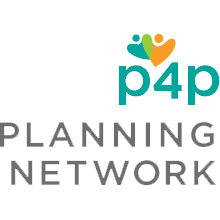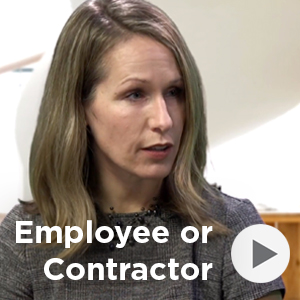
HIRING SUPPORT WORKERS
HIRING SUPPORT WORKERS
Vision
Judith McGill is an Independent Facilitator and offers a workshop for families entitled Taking Charge: Meaningfully Engaging and Doing Well by Community Support Workers. In this short clip, Judith shares some insights on getting started and defining your vision.
With a clear vision, a support worker can support your loved one in exploring community opportunities, learning new skills, developing valued roles, nurturing friendships, securing paid work or volunteer opportunities and more. Check out some of the video profiles on the Planning Network for inspiration. Don’t be afraid to aim high.
Preparation
- Clarify your vision and write it down – it will drive the process and will determine what the worker will focus on.
- Prepare a Job Description to distribute to potential candidates. To help you get started we have included a sample Job Description.
- Prepare an Employment Contract or Contractor Service Agreement that includes all critical details. You may consult with a lawyer or check out customized templates for Employment Contracts, Employment Offers and Service Agreements available through the Law Depot.
- Determine your interviewing process in advance.
- Consider an orientation and training opportunities for the person you hire.
Recruiting
With individualized funding, you have the flexibility of hiring whomever is right for the position without restriction so when it comes to recruiting, get creative and think outside of the box.
One strategy is to recruit workers who may share a similar interest as your loved one. This is where you can get creative. If your son or daughter aspires to gardening, music, going to a gym, working in a restaurant, etc., hiring workers with these interests, skills or connections can be effective. Consider posting your job ad where people with these interests can see it. Try posting on related Facebook groups, community centres, local organizations or websites that appeal to those who share the same interests as the person being supported .
Some parents have found that referrals from friends or current workers can be effective or they’ll post the job ad with their church, service club or other groups they’re members of. Leverage your relationships.
Traditional newspaper advertising is much less common these days but perhaps an option in your community. Promotion on online platforms is much more popular. There are free platforms like Kijjiji, Craigslist or even community Facebook groups or paid platforms like Charity Village or Indeed. While the paid platforms can be expensive, they often have functionality built in to their platforms that can help simplify and manage the recruitment process.
Are there colleges or universities in your community? If so, do they have Personal Support Worker or Disability Studies or other related programs. Searching for someone who has an awareness of disability issues could be effective. These programs may also have job boards you can check out.
If your preference is to hire supporters who have been through a Developmental Service Workers program, the DSW Coop was created in Ottawa in collaboration with Algonquin College as a reliable source for DSWs in the Ottawa area. You can find other colleges in Ontario that offer DSW Programs here.
The bottom line is, finding a great support worker may take some creativity and diligence but the effort may be well worth it in the long term.
Interviewing
A few best practices to consider:
- It can be effective to hold telephone screening calls before meeting candidates in person. This way you can quickly eliminate unsuitable candidates.
- You may want to conduct the first interview in a public location. This is a safe practice for you and your family but also for the candidates.
- Your loved one should definitely have a say in who is supporting them but for some, it may be beneficial to delay introducing them after you have short-listed the candidates.
Many families setup a process where they first screen candidates over the phone, meet next in person in a public location and then meet in their homes with their son or daughter or others that may support them.
Hiring
In hiring support workers it’s helpful to learn a little about employment law. Specifically, you will want to understand if the person you hire is an independent contractor or an employee. Quite often, the distinction between the two has to do with how the position is setup initially.
Independent contractors are similar to those who might run a small business like a landscaper, house painter or mechanic. They fulfill services for you, set their own fees and invoice accordingly. The person hiring them does not remit income taxes, allocate holidays, tell them how to do their job, etc.
Employees on the other hand work directly for you, and as an employer you will have certain responsibilities. You will determine all aspects of their work. You will set their schedules, instruct them on how to do the work, deduct income taxes, pay for statutory holidays, deduct and payroll remittances to CRA. Employees are entitled to vacation pay, maternity benefits and all rights that every employee is eligible for.
Cheryl Pooran has been a panelist on a number of P4P Webcasts and offers insights on the difference between Employees and Independent Contractors in this video clip.
PooranLaw has written an article “Tips & Traps for Families Hiring Private Workers” that offers insights on employment status and links to a variety of resources.
Regardless of whether your worker is an employee or an independent contractor, providing a written contract or service agreement is critical.
It’s always a good practice to check a candidate’s references and to arrange for a Police Background Check or Vulnerable Sector Screening Check. Your local police department can provide information on the process.
Managing
If you have several workers, you might schedule shadow shifts where the new hire follows a worker with experience or a family member for initial training. If you have several workers, organizing the occasional team meeting or scheduling shifts so they overlap provides an opportunity for your workers to connect, share strategies and discuss concerns.
Ensuring good communication between you and the worker is also critical. If you won’t have an opportunity to see the worker frequently, establishing a communication book where both the parent and worker will provide daily updates can be effective.
Scheduling performance reviews on a regular basis provides an opportunity for both the parents and worker to share their feedback.
It’s our hope that this guide will provide some good practices to consider when hiring a support worker. If you have other tips or suggestions please email info@p4p.ca.








